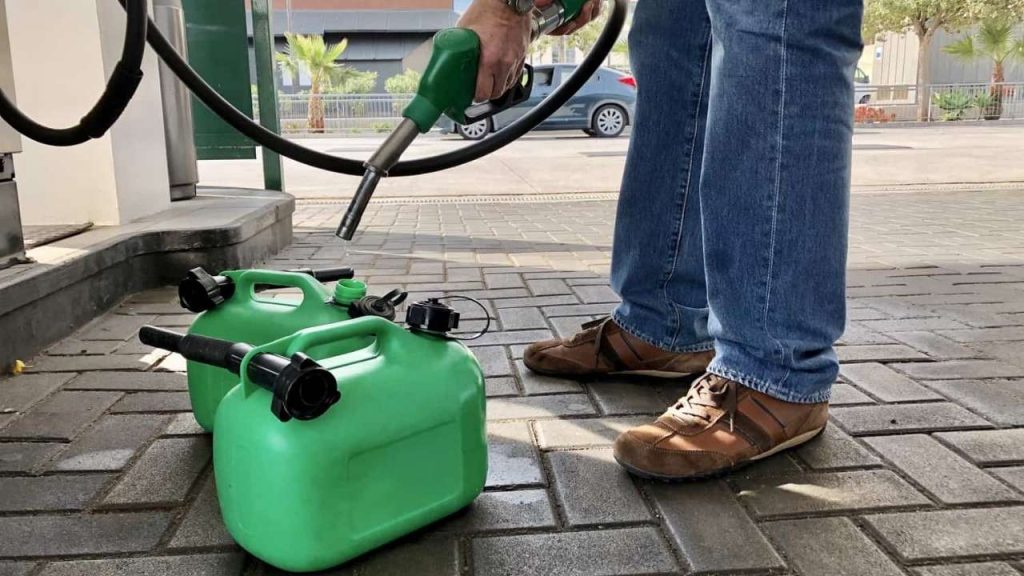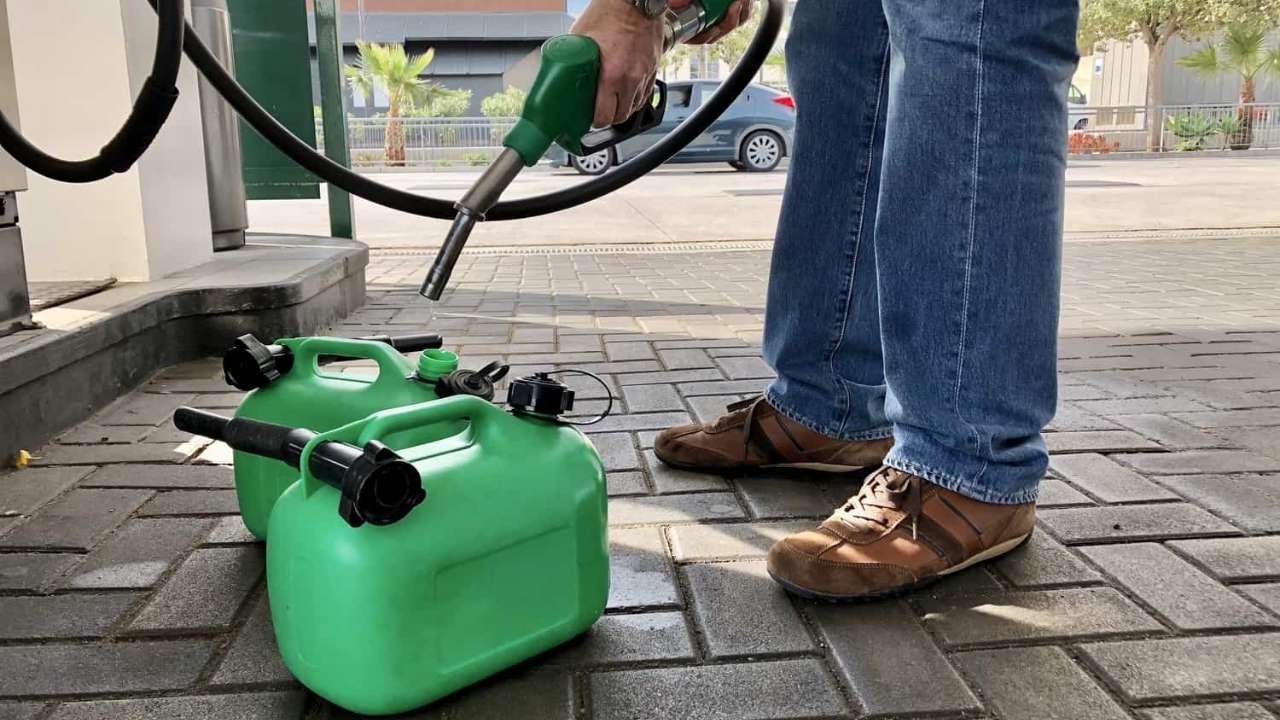In a bold and crucial move, the state of Odisha has imposed a ban on the sale of petrol and diesel in plastic containers, following a series of tragic events linked to the misuse of fuel sold in such bottles. The ban comes after the tragic self-immolation of a college student in Balasore, who bought petrol in a plastic bottle, and another horrifying incident in Puri, where a 15-year-old girl was set on fire using inflammable substances. The growing concerns surrounding safety prompted the Odisha government to take drastic measures to curb these incidents.

This move is a response to an urgent need for safety, as the dangers posed by fuel misuse in plastic containers are becoming more evident. Plastic containers are often used as makeshift fuel holders, a practice that significantly increases the risk of fires, explosions, and other safety hazards. To ensure public safety, the state has set a new rule, effective July 21, 2025, barring the sale of petrol or diesel in plastic containers at all petrol stations across the state.
Odisha Enforces Ban on Fuel Sales in Plastic
| Key Point | Details |
|---|---|
| What is banned? | Sale of petrol and diesel in plastic containers |
| Effective Date | July 21, 2025 |
| Reason for the Ban | To prevent accidents and tragedies involving fuel sold in plastic bottles, after a series of incidents. |
| Enforcement Agencies | Petrol pumps, local enforcement teams, and district authorities |
| Penalties for Violation | Legal action, fines, and other regulatory measures |
| Primary Goal | Enhance public safety, reduce misuse of fuel, and ensure regulated fuel distribution |
| Key Authorities Involved | Odisha Government, Food Supplies and Consumer Welfare Minister Krushna Chandra Patra, District Collectors |
| For Further Information | Official Odisha Website |
The ban on fuel sales in plastic containers in Odisha is an essential step in preventing tragedies like the self-immolation of a student and the recent incidents involving a 15-year-old girl. While this move might seem drastic, it’s necessary to prioritize public safety and prevent future disasters. By following the guidelines, using approved containers, and staying informed about local regulations, we can all contribute to a safer environment.
Why is the Ban on Plastic Containers Necessary?
The necessity of this ban cannot be overstated, particularly when viewed through the lens of public safety. Fuel is highly flammable, and when stored improperly in plastic containers, it can lead to catastrophic consequences. In recent months, incidents involving plastic containers have highlighted how dangerous this practice can be. For example, in one tragic case, a college student in Balasore, Odisha, self-immolated after purchasing fuel in a plastic bottle. The flames from the fuel spread rapidly, leading to a tragic and irreversible outcome.
Similarly, in another incident in Puri, a 15-year-old girl was set on fire with fuel purchased in a plastic bottle. These heartbreaking events shed light on the importance of proper fuel handling, storage, and distribution methods. Improper handling of fuel, especially in unregulated containers like plastic bottles, can result in severe consequences, not just for individuals, but for entire communities.
What Does the Ban Involve?
Effective from July 21, 2025, all petrol stations across Odisha are prohibited from selling fuel in plastic bottles or containers. The ban requires fuel to be dispensed only in approved containers, such as glass bottles or metal cans, which are better suited to handling flammable substances.
The ban also focuses on illegal fuel sales and transportation. In the past, there have been instances where unauthorized vendors were selling fuel in plastic bottles at roadside stalls or makeshift shops. The Odisha government has cracked down on such activities, emphasizing that only licensed containers should be used for fuel sale and transport. This crackdown is part of a broader effort to ensure fuel is sold in a safe and regulated manner.
Why Should We Care?
It’s easy to dismiss the idea of buying fuel in a plastic bottle as an innocuous practice, especially if it’s just a little fuel for a lawnmower or generator. However, the reality is that mishandling fuel can be deadly. The risks of using plastic containers for fuel storage far outweigh the convenience. Fuel vapors can easily ignite, and plastic, being a poor choice for holding such volatile substances, can lead to disastrous outcomes.
By shifting to more secure containers like metal cans or approved glass bottles, the risk of dangerous incidents is significantly reduced. It’s not just about following the law—it’s about saving lives and ensuring that the safety of individuals and communities comes first.
A Odisha Enforces Ban on Fuel Sales in Plastic Guide to Safe Fuel Practices
If you’re unsure how to handle fuel safely, here’s a simple guide to help you avoid accidents and stay on the right side of the law.
1. Always Use Approved Containers
- What You Need: Make sure you use metal cans or other approved containers. These containers are designed to handle the volatility of fuel and ensure safe transport and storage.
- Why It’s Important: Plastic bottles can easily leak, melt, or catch fire. Avoid using any containers that aren’t specifically approved for fuel storage.
2. Proper Fuel Storage
- Where to Store: Store fuel in a cool, dry place away from heat sources or open flames.
- How Much to Store: Only store as much fuel as necessary, and always ensure containers are sealed tightly to prevent spillage or vapor release.
3. Be Aware of Local Regulations
- Stay Informed: Always check local rules regarding fuel handling and storage. Some areas may have specific regulations about the quantity of fuel you can store or the types of containers allowed.
- Follow the Rules: Ignoring local regulations can lead to accidents or even legal penalties. Always stay compliant with safety standards.
4. Dispose of Unused Fuel Safely
- Don’t Throw It Away: If you have excess fuel that you no longer need, don’t throw it away. Find a local disposal facility that accepts fuel for safe disposal.
- Why It’s Important: Improper disposal can lead to environmental hazards and even fires.
5. Regular Inspections
- Check Containers: Regularly inspect your fuel containers for damage or signs of wear. If you notice any leaks or cracks, replace the container immediately.
- Why It’s Important: Damaged containers can lead to dangerous situations, especially if they’re carrying fuel.
The Role of Authorities in Enforcing the Ban
The Odisha government has shown a strong commitment to ensuring the success of this ban by actively monitoring petrol stations and vendors. District collectors and enforcement teams are conducting surprise inspections to ensure compliance. Any petrol station found violating the new rules will face legal action, including fines and possible suspension of licenses.
Enforcement teams are also focused on tackling illegal vendors who sell fuel in plastic bottles or containers. These vendors, often working outside the regulations, are a significant safety risk to the community, and the Odisha government has vowed to take swift action against them.
Minor Girl Set on Fire in Odisha’s Puri—Grim Details Emerge as She Battles for Survival
Odisha Orders Higher Ed Institutes to Prominently Display Women’s Helpline (181) on Campus
Tragic End of an ABVP Activist and Self-Defence Teacher in Odisha College
FAQs
1. Can I still buy fuel in a metal can or glass bottle?
- Yes, you can purchase fuel in approved metal cans or glass bottles. These containers are designed to safely hold fuel.
2. What should I do if I see someone selling fuel in a plastic bottle?
- Report the incident to local authorities or the Odisha State Police. Such sales are illegal and pose significant safety risks.
3. Are there any exceptions to the fuel sales ban?
- The sale of fuel in plastic bottles is strictly prohibited, but fuel can be sold in other approved containers for specific purposes, like agricultural or industrial use.
4. What happens if I break the law?
- If you are found selling fuel in plastic bottles, you could face legal action, fines, or even the suspension of your business license.





